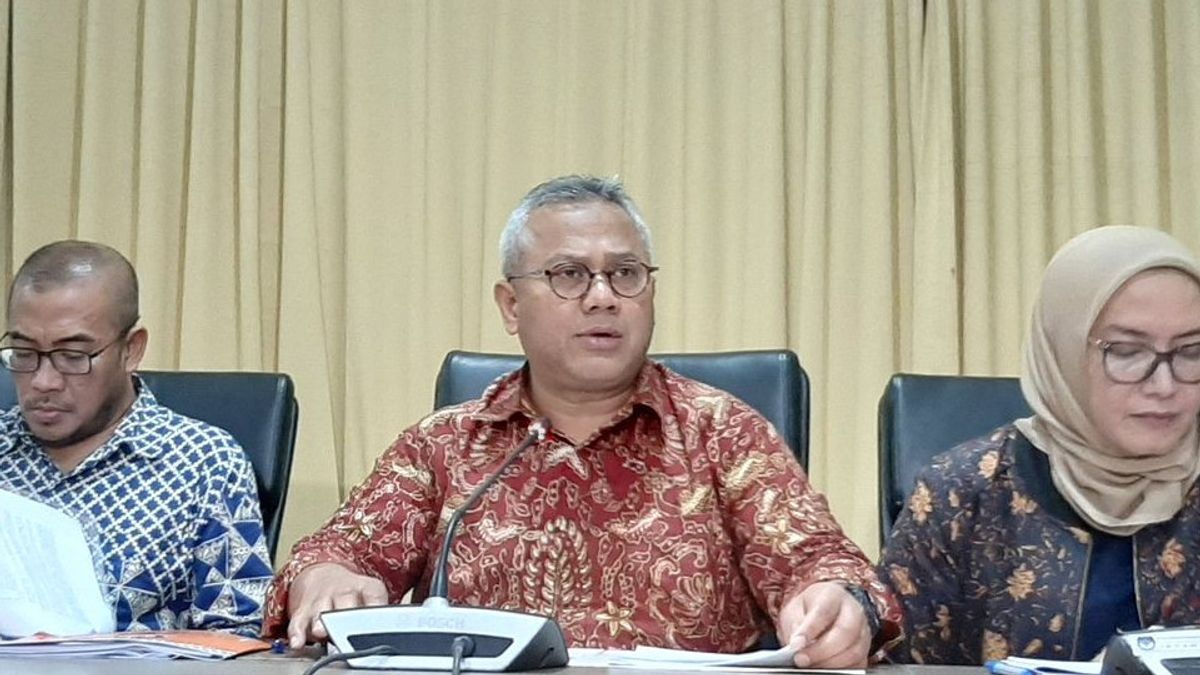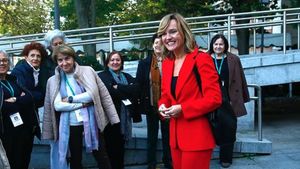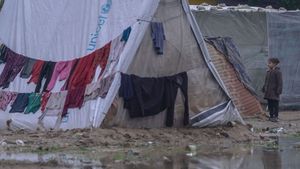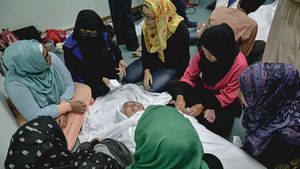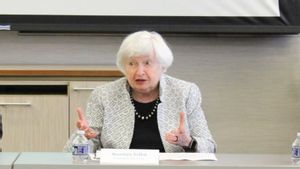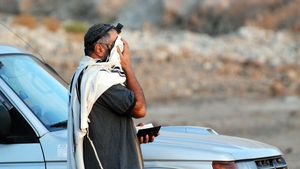JAKARTA - The head of the General Election Commission (KPU) Arief Budiman said that the implementation of an open campaign during the mid-week of COVID-19 is still allowed.
The reason is, the KPU cannot prohibit open campaigns or other meetings because they have been regulated in the applicable laws.
"First, the law regulates the permitted methods, including campaigns in general meetings, open campaigns, and limited meetings. If the KPU prohibits them, if disputed they can lose," said Arief in a webinar that was broadcast on YouTube, Tuesday, June 16.
The KPU will organize open campaigns and limited meetings with the application of health protocols to prevent transmission of COVID-19.
There are several rules made by the KPU, such as limiting participants in closed meetings. In one meeting, continued Arief, only 25 people were allowed to participate.
Other regulations, he said, must also follow the implementation of Large-Scale Social Restrictions (PSBB) in each region where the 2020 Pilkada is held.
"Now this is what we are completing in PKPU regarding election procedures in times of disaster," he said.
Meanwhile, the technical aspects of online campaigns, both through social media and broadcasting such as radio and television, are still in the formulation stage.
According to the plan, the KPU will increase the duration of the campaign on television and radio because of the direct reduction of the campaign. "So it is still possible but there are adjustments," said Arief.
Previously, Doni Monardo, Chair of the Task Force for the Acceleration of Handling COVID-19, recommended the implementation of the 2020 Pilkada even though the COVID-19 event was still happening.
However, he reminded election organizers to pay attention to health protocols and to conduct studies so that there is no transmission of COVID-19.
"The Task Force has recommended the holding of regional elections but with a special note, that it must comply with health protocols and all activities carried out must be based on a study starting with preconditions for all the regions involved," said Doni in a hearing (RDP) with Commission II of the Indonesian Parliament. , Thursday, June 11.
This preconditioned activity, continued Doni, had to involve all parties, including the community at the bottom of the hierarchy, namely RT and RW.
On the other hand, he reminded, during the pilkada process, it was not allowed to hold meetings that involved many people. Even if forced, these meetings must be closely monitored.
So far, of the 270 regions that will carry out the elections, zoning has not been divided based on the level of risk of COVID-19 transmission. According to him, election organizers need to know the details of the zoning in order to make more preparations.
"As of today, there are 261 districts / cities that will participate in the 2020 Pilkada, consisting of 43 unaffected areas, 72 low risk areas, 99 medium risk areas, and 40 high risk areas. Meanwhile, for provinces there are 9 regions," he explained. Doni.
Doni reminded that this figure could grow until the local elections on December 9th. Thus, it is important for pilkada organizers to keep abreast of zoning developments stipulated by the Task Force.
"It could be that the red one at the end or before the election will turn yellow, for example. But also the opposite, the yellow one can turn orange or turn red," he said.
"This will continue to be reported every Monday by the expert team. These data are accumulated data from each district / city," he added.
The English, Chinese, Japanese, Arabic, and French versions are automatically generated by the AI. So there may still be inaccuracies in translating, please always see Indonesian as our main language. (system supported by DigitalSiber.id)
